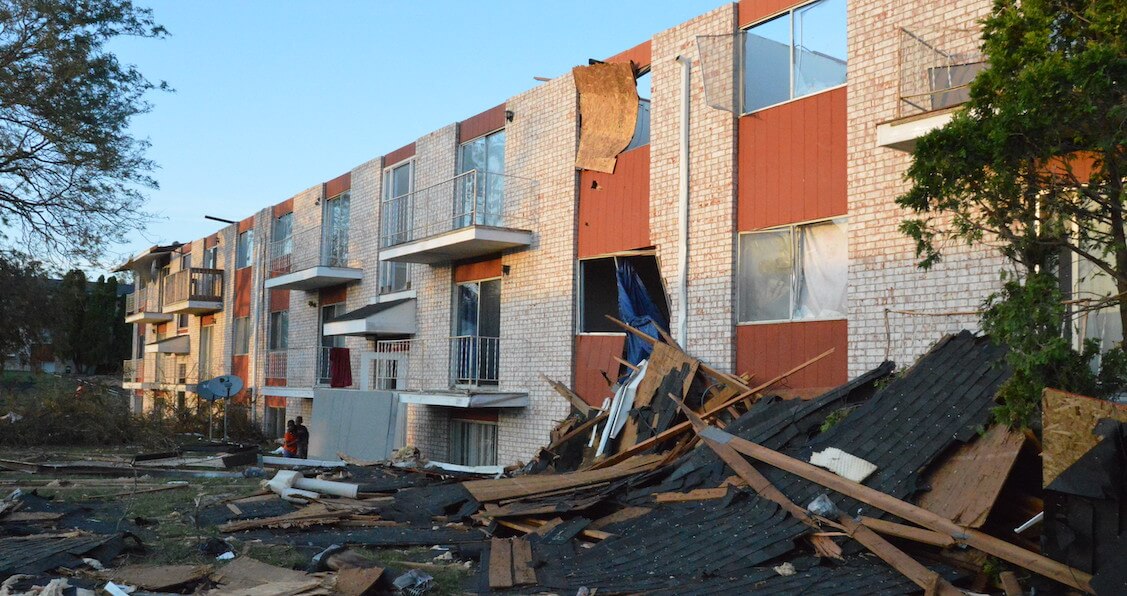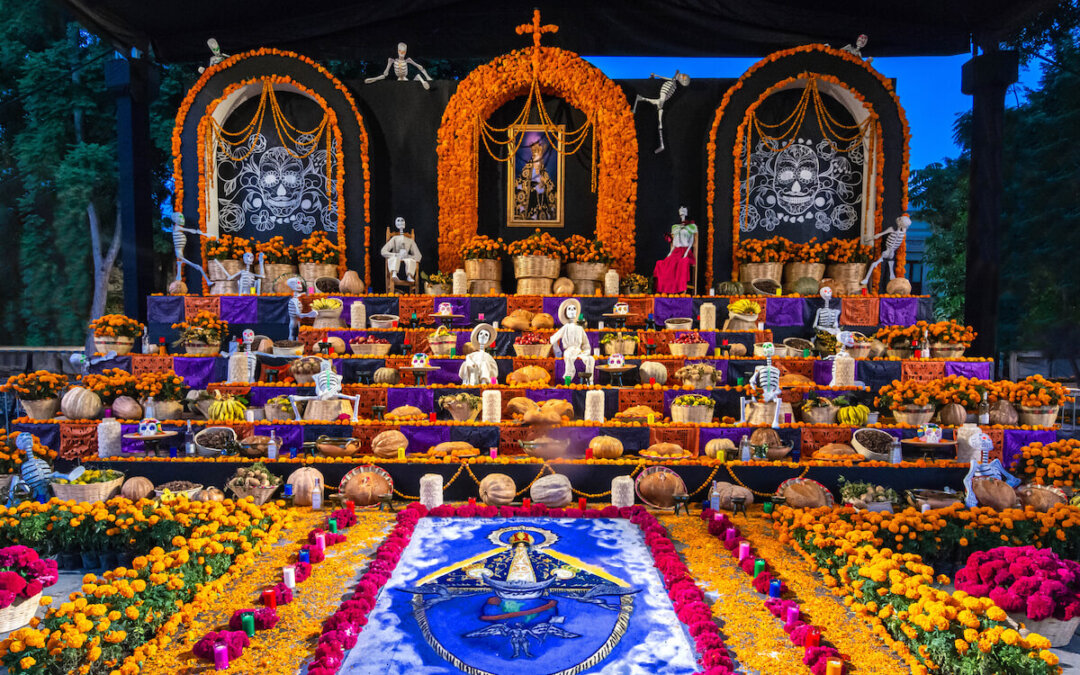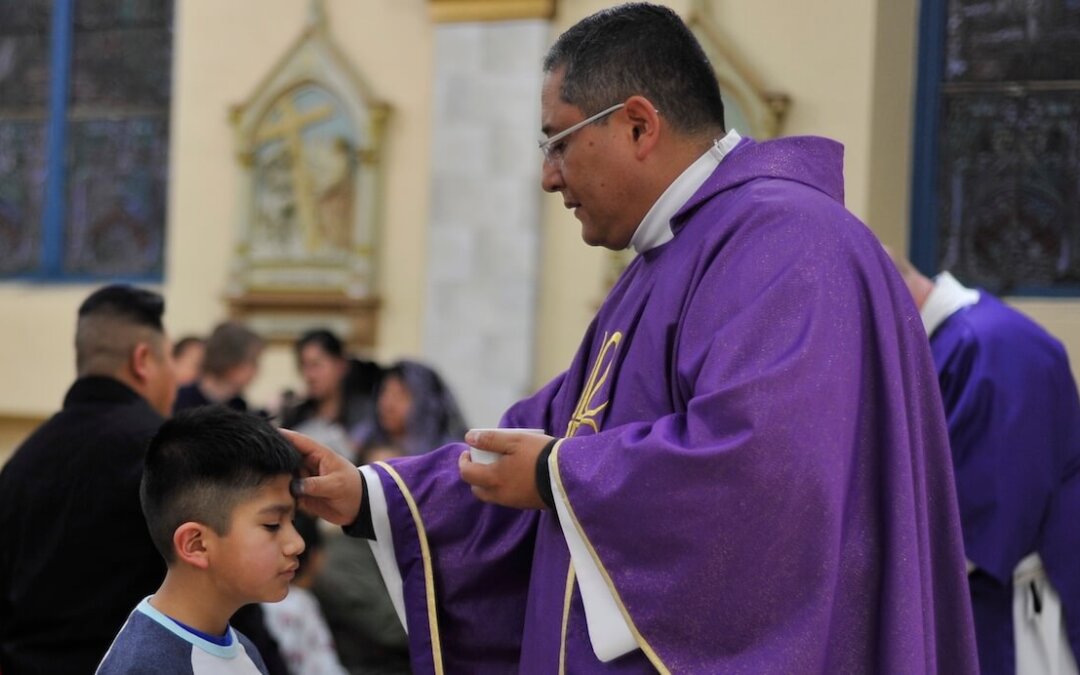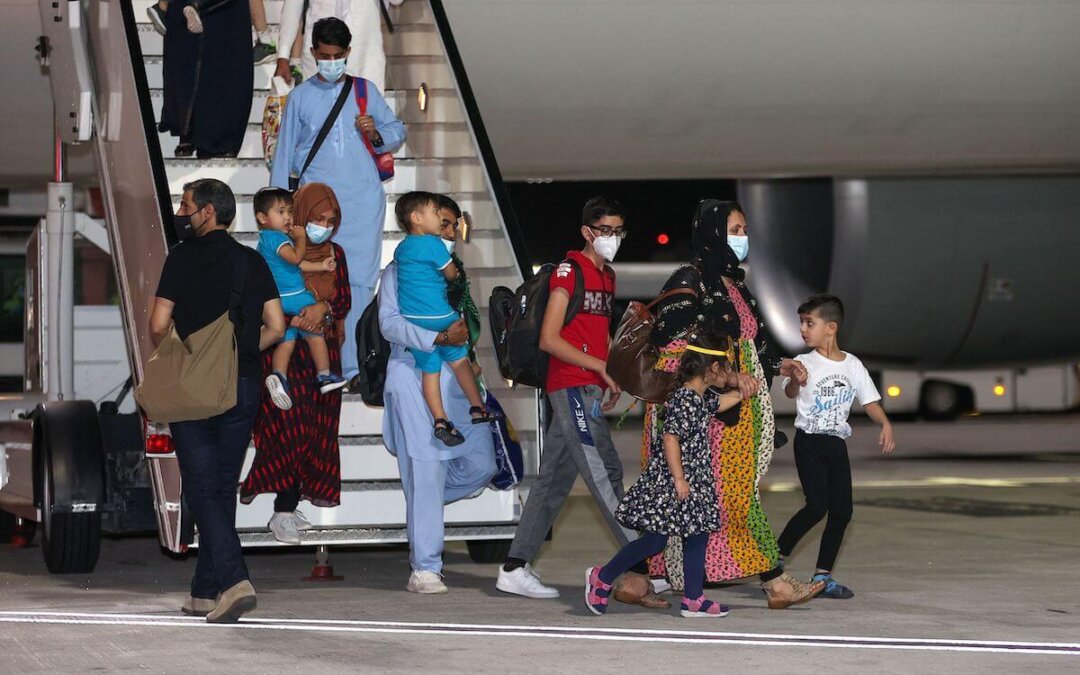
The derecho hit Iowa hard and fast. From downed trees damaging houses and losing power for hours, even days, Iowans are slowly recovering from yet another crisis. Unfortunately, as it often happens, the storm hit already vulnerable communities the hardest.
As with most natural disasters, nobody has control over the devastation, but our elected officials have a responsibility to respond quickly to help those affected.
Communities in Iowa were impacted differently. Millions of acres of corn were flattened. Many material losses were reported in cities and towns. Marshalltown, home to many immigrants and refugees working in the meatpacking industry, a town just recovering from a 2018 tornado, was hit hard.
Cedar Rapids has it the worst, where many were literally left without a roof, homeless.
[inline-ad id=”3″]
Riziki Mwirotsi, 16, a Roosevelt High School student from Des Moines, heard about the worsening situation in Cedar Rapids through social media. Riziki’s first thought was, “Has anybody in our government done anything about it?”
Learning that many residents were still without power, sleeping in their cars, without food or any kind of help, Riziki decided to take a day off from her new job at Target to go out and help.
When she learned of the conditions of refugees after the storm she thought, “These people need help and I don’t have any money to donate. I can’t buy stuff for them either. I should go and help in any way I can, even if it’s just for one day.” Activism, volunteering, and compassion run in the family.
Nearly a week after the storm, Riziki, her mom and other volunteers went to Cedar Rapids.
Once there and after seeing the devastation and what residents are going through, she became emotional.
“I didn’t want to cry because it wasn’t my place, and I thought, I have a roof over my head in Des Moines, my power was back on, I have food in my fridge, I have air conditioning.”
[inline-ad id=”2″]
Riziki and the other volunteers visited the southwest part of the city where many refugees live and where the storm caused extensive damage to apartment buildings.
There were signs at the entrance of the complex where they were volunteering. The signs indicated that the area was not suitable to live in, yet residents were there living in tents between the rubble and broken glass everywhere.
Kids were running around playing among the debris because that is all the space or playground they currently have.
Most of the residents living there are refugees from East and Central Africa and Micronesian islands, who fled their countries due to wars.
“When disasters like this happen, it is different for refugees because it is like they are back home, back to the same trauma, and I think that America can do better than what they have done right now,” Riziki said.
“At the end of the day, these refugees are human beings; they shouldn’t be treated differently or provided with less, no matter who they are. If my mom had not taken the initiative to go and help and make noise, nobody would pay attention to this community’s situation.”
[inline-ad id=”1″]
Another young man from Des Moines who volunteered is 20-year-old Robert Nishimwe, a political economy student at Georgetown University. He learned about what happened in Cedar Rapids on Friday night and decided to go help on Saturday and Sunday.
He was in shock when he arrived and saw the property damage in southwest Cedar Rapids. What hit him the most was seeing people living in their cars or in tents.
“How are people still in this condition on Saturday when the storm hit on Monday (Aug. 10)?” Robert asked. “I was in shock, but also it made me angry.”
I asked him why he was compelled to go and help. Every time he learns of people impacted by natural disasters and other emergencies, including the pandemic, Robert said the people often most negatively impacted are immigrants and refugees. For him, there is no question.
“I believe that all of us as human beings should help each other whenever we can,” he said. “When I saw the conditions and realized that the government was not there, I kept thinking about what happened in [Hurricane] Katrina and Puerto Rico and the lack of response from the government after those disasters.”
[inline-ad id=”4″]
Robert believes these specific communities — black, brown, immigrant and refugee — are always going to be the last people the government is going to give the necessary resources in times like these.
Some of the residents were angry, and others told Robert that they experienced similar things in their homeland. After the derecho, it is almost going back to living under the same conditions as they lived in refugee camps.
Another problem Robert became aware of was the fact that members of this affected community did not understand what was going on in terms of the government response.
Local officials lacked a proper communication plan in terms of culture and language. After news coverage about the conditions these community members were enduring, Robert said there was response from some organizations offering shelter.
He asked individuals why they were not going to the shelter when a Congolese man asked him if the shelter was like jail.
Government officials did too little too late while refugees endured unbearable conditions longer than the rest. From the perspective of volunteers and victims of the storm, it seemed that the power was restored faster in more affluent areas of Cedar Rapids and Des Moines.
[inline-ad id=”5″]
It is inspiring to meet two young people that care for community, two young people who are intentional about helping those in need. They demonstrated what it is like to lead in times of crisis.
Let us hope elected officials and public servants are taking notes from Robert and Riziki’s example and learn to deliver, if not out of compassion, at least out of duty. After all, it is tax dollars that pay their salaries and benefits.
Yet again, the top elected official, Gov. Kim Reynolds, lacks empathy and sense of service for all Iowans. She is not leading by example. It took her one week to issue an emergency declaration.
Within the last week, Reynolds hosted Vice President Mike Pence and President Donald Trump. Pence didn’t go out to tour the damage, but did hold a fundraiser. Trump approved only part of the disaster aid requested by Reynolds, but when in Iowa on Tuesday pledged his “full support.” We will see.
Iowa is missing a true leader. One who does not take orders from D.C. but from Iowans. Iowans deserve leaders that care for Iowans more than they care for their donors.
As I reflect on this latest crisis, derecho sounded odd to me at first. In Spanish it means law, straight, a right.
In retrospect, Iowans have a derecho (right) to better leadership. So does our country.
By Claudia Thrane
Posted 8/19/20
Iowa Starting Line is an independently-owned progressive news outlet devoted to providing unique, insightful coverage on Iowa news and politics. We need reader support to continue operating — please donate here. Follow us on Twitter and Facebook for more coverage.
Politics

Biden marks Earth Day by announcing $7 billion in solar grants
The Biden administration on Monday announced the recipients of its Solar For All Program, a $7 billion climate program that aims to lower energy...

6 terrifying things that could happen if the Comstock Act is used to target abortion
Does 1873 sound like a really, really long time ago? Well, that’s because it is—but if Republicans and far-right anti-abortion activists have their...
Local News

No more Kum & Go? New owner Maverik of Utah retiring famous brand
Will Kum & Go have come and gone by next year? One new report claims that's the plan by the store's new owners. The Iowa-based convenience store...

Here’s a recap of the biggest headlines Iowa celebs made In 2023
For these famous Iowans, 2023 was a year of controversy, career highlights, and full-circle moments. Here’s how 2023 went for the following Iowans:...




